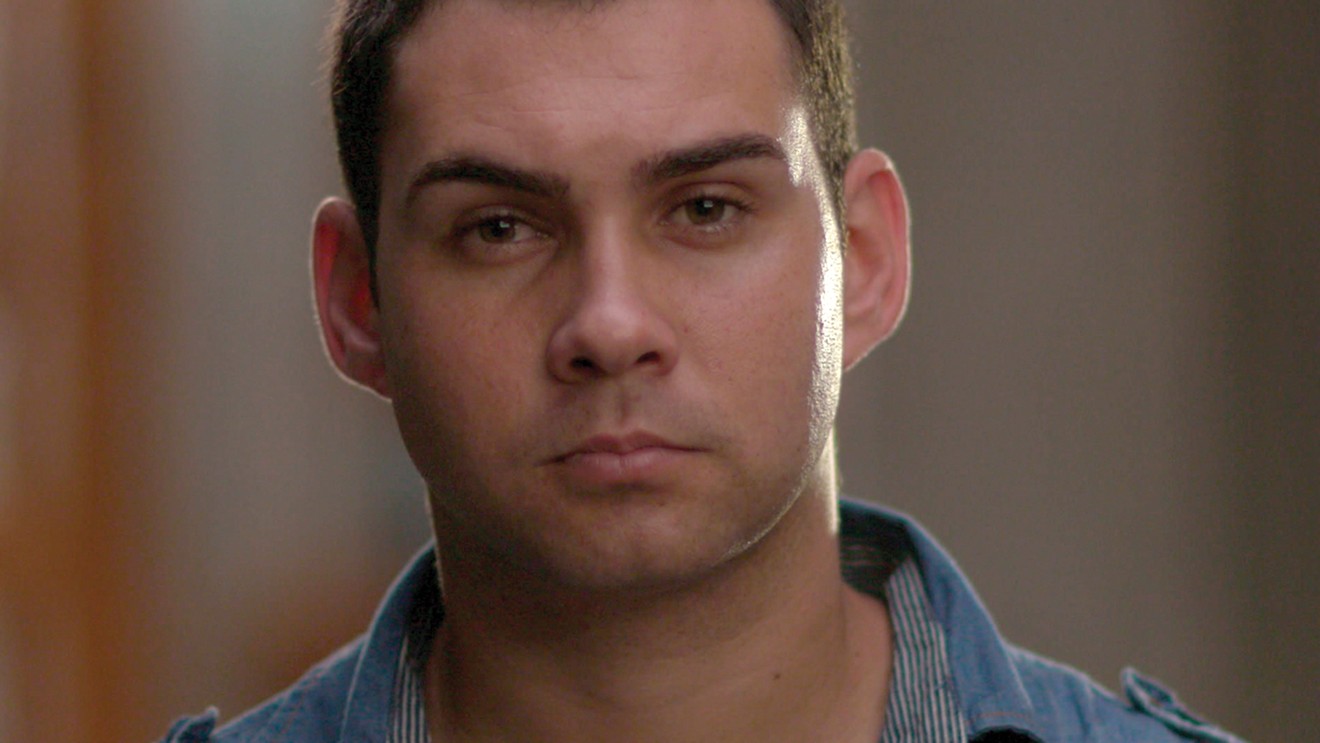On Thanksgiving Day in 1999, a Cuban boy named Elián González was rescued off the coast of Florida while floating alone in an inner tube. His mother and 12 other refugees had drowned in that perilous journey so many Cubans have taken to find asylum in the U.S. Elián’s seven-month presence in the country turned into a bitter custody battle between his Miami relatives and Cuban father, with opposing political forces from the U.S. and Cuba embroiled in the heated immigration controversy.
A new documentary film about the saga, simply titled Elián, premiered at the Tribeca Film Festival in April and plays exclusively at O Cinema Miami Beach June 2 through 8, 18 years after the pivotal moment in the history of Cuba and U.S. relations.
Elián wasn’t just a cute, bewildered kid caught in a political tug of war. He was an event, a thing that happened to Miami, much like a named storm. Elián was a tension that tore through the city, a media obsession, a story that shook hearts.
As a narrator relates near the beginning of the film:
“This is a story of a little boy from Cuba whose mother died bringing him to freedom in the United States. Or maybe it’s the story of a boy shipwrecked in Miami whose Cuban father just wanted him back. It was always supposed to be Elián’s story — although a lot of other people would try to make it their own.”
Executive-produced by Alex Gibney and directed by Tim Golden and Ross McDonnell, the film uses extensive archival footage and contemporary interviews with key players to put the story in context. Among these are Elián himself, now a 23-year-old industrial engineering graduate in Cuba; his father Juan Miguel González Quintana; and Marisleysis González, the Miami cousin who cared for the child and whose tearful pleas were pitched all over the news.
The rest of the cast reads like a who’s who in Cuban-American and Miami politics. History buffs will love Elián, but anyone can easily be drawn into the riveting story, which is set chronologically and is fairly impartial, despite the polarizing effect of González himself.
“I let people speak on their own terms,” says Golden. “You couldn’t understand it on both levels unless you could empathize with both sides.”
All eyes were on Miami during González' saga. Riots erupted over differences of opinion on whether the child should return to his father or remain in the U.S. The humble home at 2319 Northwest Second Street, where the boy lived with his relatives, turned into ground zero for the ideological battle and media frenzy. Protesters and international media camped out around the house 24/7. At the beginning of the new millennium, this was a big deal. The news cycle wasn’t as manic as it is today and social media as we know it didn’t exist. González, his caregivers, and anyone who walked into and out of the house had little privacy. Anytime you turned on the TV or opened a newspaper, Elián was in your face, the issue invading Miami's collective consciousness.
The saturated coverage, as well as access to Cuban footage that's difficult to come by, helped the filmmakers assemble a thorough chronicle. While the documentary is sure to draw visceral emotion in those Miamians who were caught up in González' story, anyone watching the film should reserve knee-jerk reactions to the end.
“We always sensed that this had been a pivotal moment in Cuban-American politics, even though it took a long time to germinate,” says Golden. “We had a sense from the beginning that the universal aspect of this was in part a story about people becoming trapped in their political narratives and how we inherit and are brought up to believe in those narratives.”
Elián the documentary shows that well-meaning people had González' best interests in mind, and the twisted course of events through which he became everybody’s poster child, a pawn in an ideological war with many factions: Miami’s anti-Castro Cuban exiles, the government they fled, and the government they adopted. He made the perfect tool for Castro’s anti-Yankee rhetoric, bolstering the U.S. as Cuba’s eternal scapegoat. Elián was an archetypal Everyman, an accidental hero, which Miami’s exile community as well as communist Cuba adopted as a symbol for two very different kinds of hope.
And in the middle of it all, a shy six-year old boy who, if he had drowned like his mother, would've been just another body like so many before him sinking deep into the watery grave of the Florida Straits.
In April 2000, federal marshals forcibly seized González from the Miami home. He was repatriated back to Cuba in June. But his story remains inextricably tied to Miami. South Florida novelist and Miami Herald columnist Carl Hiassen is a commentator in the documentary, and suggests that whatever Elián has become in Cuba, he was in fact, “created in Miami.”
The Elián saga was indeed a very Miami thing that happened, a phenomenon of diaspora that could only have surfaced in the nostalgia — the "pain for home" — that defined the lives of Miami’s Cuban refugee community. The saga shores up intense feelings about loyalties, love of family and country, and our sense of boundaries about where these two aspects of identity overlap.
The film concludes with hints of personal reconciliation and healing on both sides of the family. We also hear a clip from Obama’s 2016 historic speech in Cuba: “I have come here to bury the last remnant of the Cold War in the Americas.”
We have to wonder, however, if those remnants of the Cold War, including Cuba’s censorship, will even allow a grown-up González to see the film, and if he’ll ever understand “Elián’s story” outside the context of communist indoctrination. In the film, he claims not to remember much about that time. But his story took on monumental significance that still resonates as a invisible wall begins to crumble between Cuba and the United States.
At the end of the film, he swims in the ocean, but just like the balseros we see getting ready to launch in the opening scenes, he’s still not free to leave the island. The image of the man floating underwater gives pause and evokes a story still flowing in collective memory. For many Cubans on the island and abroad, the Elián story isn’t truly over.
Elián
June 2 through 8 at O Cinema Miami Beach, 500 71st St., Miami Beach. Tickets cost $11 for general admission, $9.50 for students and seniors, and $7.50 for members online or at door. Visit o-cinema.org.
[
{
"name": "Air - MediumRectangle - Inline Content - Mobile Display Size",
"component": "19274298",
"insertPoint": "2",
"requiredCountToDisplay": "2"
},{
"name": "Editor Picks",
"component": "17482312",
"insertPoint": "4",
"requiredCountToDisplay": "1"
},{
"name": "Inline Links",
"component": "18711090",
"insertPoint": "8th",
"startingPoint": 8,
"requiredCountToDisplay": "7",
"maxInsertions": 25
},{
"name": "Air - MediumRectangle - Combo - Inline Content",
"component": "17482310",
"insertPoint": "8th",
"startingPoint": 8,
"requiredCountToDisplay": "7",
"maxInsertions": 25
},{
"name": "Inline Links",
"component": "18711090",
"insertPoint": "8th",
"startingPoint": 12,
"requiredCountToDisplay": "11",
"maxInsertions": 25
},{
"name": "Air - Leaderboard Tower - Combo - Inline Content",
"component": "17482313",
"insertPoint": "8th",
"startingPoint": 12,
"requiredCountToDisplay": "11",
"maxInsertions": 25
}
]













